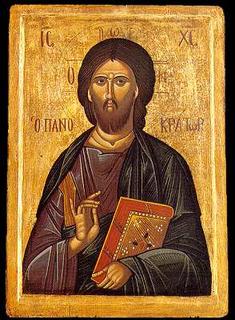Messiness of church (Part 2)

Last night I was moving about the speed of a slug. Some sort of flu-bug came on me since Sunday and I have felt lousy. So as I was dazing on the couch, thankful that Dalina was kind enough to go pick up Heather at the airport at 11 pm, I stared blankly at the pre-season tilt between Dallas and Seattle. During a commercial, as I was channel-flipping, I happened upon a news story about Venezuela that caught my interest. I watched the rest of the story focusing on Hugo Chavez. It was CBN, and at the end of the story Pat Robertson offered some additional commentary. His comments included the idea that the United States should assassinate Hugo Chavez. It would be a lot cheaper than war.
Thanks to DLM for posting your comments yesterday. I appreciated your perspective and identify with the tension that exists within seemingly polar opposite viewpoints espoused even within the Christian community. This is also a part of the messiness I am identifying. It is a messiness, that makes me wonder if I am reading the same Bible as Pat Robertson. Is it possible that another Christian, a Christian leader, is calling for our government to kill the leader of another government? What Scriptural basis could he possibly make for this? Have I, and my faith community, been misreading the Sermon on the Mount, the teachings of Jesus and the New Testament? To those who cynically look upon the church from the outside, this is just another example of the hypocricy of Christians. Aren't Christians supposed to love their enemies? Aren't Christians supposed to turn the other cheek? Well yes, but we live in a the "real world" of violence and evil that must be contained. Why didn't Jesus think of that--why did he ask us to seek first his Kingdom and the ways of justice and peace through redemptive, sacrificial love--the way of the cross.
I am not without hope! "But each one should be careful how he builds. For no one can lay any foundation other than the one already laid, which is Jesus Christ" (1 Cor 3:10b-11).
"But thanks be to God, who always leads us in triumphal procession in Christ and through us spreads everywhere the fragrance of the knowledge of him. For we are to God the aroma of Christ among those who are being saved and those who are perishing. To the one we are the smell of death; to the other, the fragrance of life. And who is equal to such a task? Unlike so many, we do not peddle the word of God for profit. On the contrary, in Christ we speak before God with sincerity, like men sent from God." (2 Cor 2:14-17)
"Therefore, since through God's mercy we have this ministry, we do not lose heart. Rather, we have renounced secret and shameful ways; we do not use deception, nor do we distort the word of God. On the contrary, by setting forth the truth plainly we comend ourselves to every man's conscience in the sight of God. And even if our gospel is veiled, it is veiled to those who are perishing. The god of this age has blinded the minds of unbelievers, so that they cannot see the light of the gospel of the glory of Christ, who is the image of God. For we do not preach ourselves, but Jesus Christ as Lord, and ourselves as servants for Jesus' sake. For God, who said, 'Let light shine out of darkness,' made his light shine in our hearts to give us the light of the knowledge of the glory of God in the face of Christ.
But we have this treasure in jars of clay to show that this all-surpassing power is from God and not from us. We are hard pressed on every side, but not crushed; perplexed, but not in despair..." (2 Cor 4:1-8)
So my confidence is high, because my faith is staked on Jesus to build his church. Let us not assume that WE can solve every problem. But let us be careful to build on no other foundation than Jesus Christ. As Michelle Hershberger preached in Charlotte, "Jesus is not going to let his Church fail.
I don't think I can build upon Jesus, while calling for action that he himself would not condone--the killing of another human being for whom he died. If we are going to be pro-life. Let us be pro-life all the way.
the peace of God be with your spirit
brian
p.s. You may notice that the administrator (me) has removed some of the comments left under my last post. For some reason I get the equivalent of junk mail arriving in the form of comments to my blog posts. I just wanted to make it clear that I am not removing the comments of real people responding to my posts, but junk mail soliciting my money.




